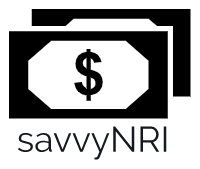Derivatives Trading for NRIs
Overview
NRIs, including NRI, PIO, and OCI cardholders, can trade in derivatives through a special set of rules. Derivatives trading involves contracts based on the value of underlying assets such as stocks, indices, currencies, and commodities. These contracts can be in the form of options or futures.
Key Requirements and Accounts
-
Custodian Participating Code (CP Code):
-
Required for NRIs trading in derivatives.
-
Linked to an NRO account (for non-repatriable funds).
-
Obtained by applying with a SEBI-registered custodian.
-
-
Accounts Needed:
-
NRO Account: To handle funds on a non-repatriation basis.
-
Demat Account: Optional if trading only in derivatives but required for stock market investments.
-
Trading Account: Contains the CP code for trading derivatives.
-
These accounts must be linked for seamless transactions.
-
Differences in Trading Process
-
Settlement:
-
Resident Indians: Derivative trades are settled by the broker.
-
NRIs: Derivative trades are settled by the custodian, with brokers typically having tie-ups with third-party custodians.
-
Regulatory Framework
-
Governed by SEBI (Securities and Exchange Board of India), RBI (Reserve Bank of India), and the stock exchanges.
-
Specific rules and regulations must be followed for NRI trading in derivatives.
Types of Derivatives
-
Futures:
-
A contract binding the seller or buyer to sell or purchase the underlying asset at a fixed price on a later date.
-
Settlement requires physical delivery or, in some cases, cash.
-
-
Options:
-
A contract that specifies, for a fee, one party has the right but not the obligation to fulfill the terms based on the price movement of the underlying asset.
-
Online Trading
-
Online trading platforms have enabled NRIs across the globe to trade and participate in India’s growth, allowing them to build their wealth efficiently.
